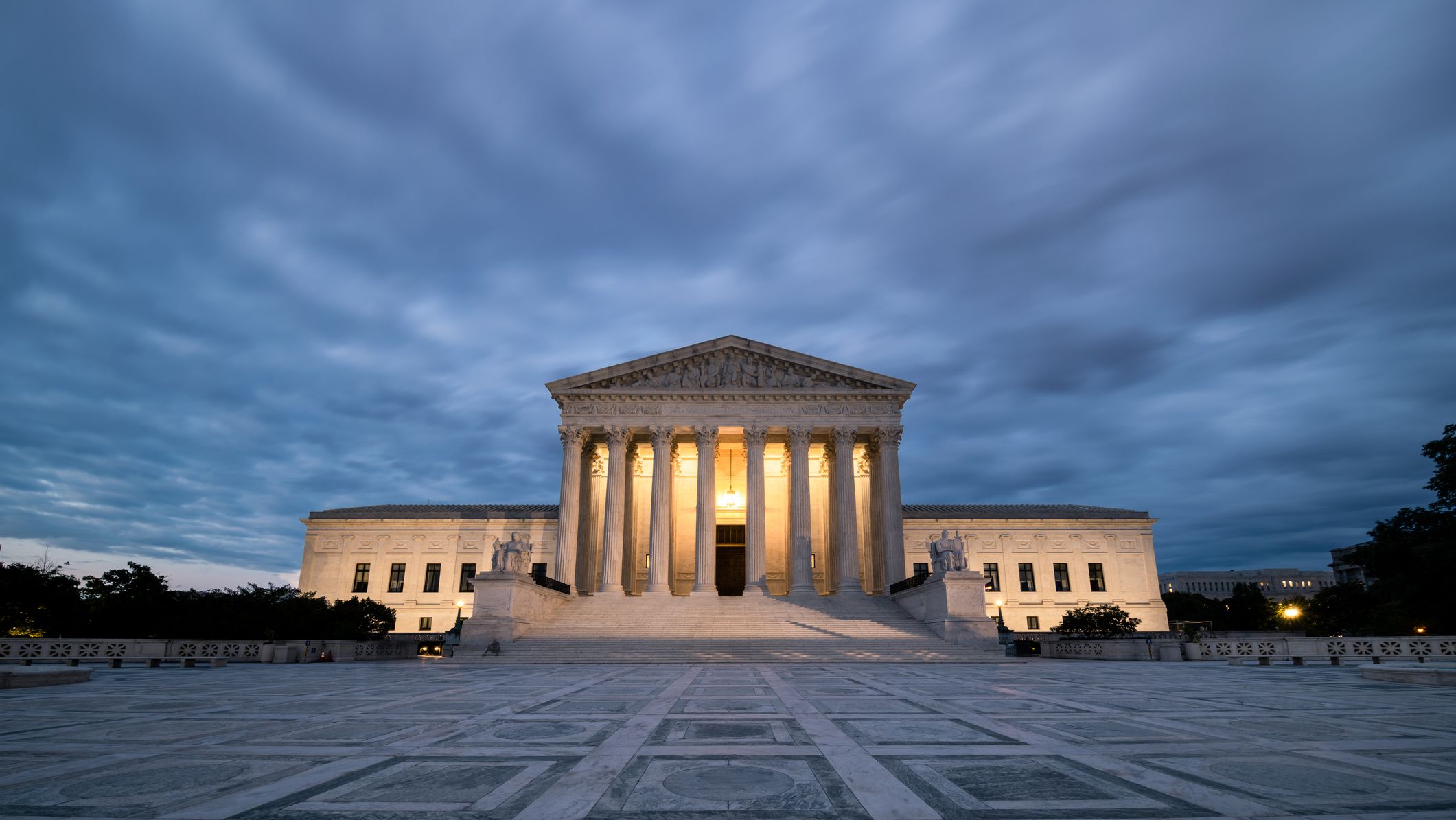The Supreme Court's Mississippi Abortion Rights Case: What to Know
The case could threaten Roe v. Wade.


Update 5/3/22: Last night, Politico reported on a leaked draft majority opinion that revealed the Supreme Court has voted to overrule the landmark Roe v. Wade decision. “Roe was egregiously wrong from the start,” Justice Samuel Alito writes in the leaked document.
If the leaked draft is adopted, it will rule in favor of Mississippi in its 15-week abortion ban. The court's decision won't be final until the decision is published, likely this summer.
Original story 5/17/21: On Monday, the Supreme Court agreed to review a major abortion case from Mississippi. In short, the state of Mississippi is trying to enforce a 15-week ban on abortion— a direct challenge to a woman's constitutionally protected right to choose, thanks to Roe v. Wade.
What is at stake?
Here's some history: In 1973, the Supreme Court decided the landmark case Roe v. Wade, reaffirmed in 1982. The Roe v. Wade decision means that the court ruled that states could not ban abortion before the viability of the fetus outside the womb—this basically means that states are blocked from enacting abortion restrictions before a fetus could survive on its own. Doctors generally view this marker to be around 23 or 24 weeks. That means that under Roe v. Wade, states could not ban abortion prior to 23 or 24 weeks.
What's happening in Mississippi?
In 2018, then-Gov. Republican Phil Bryant signed a 15-week ban into law. The ban only had exceptions for medical emergencies or cases in which there is a "severe fetal abnormality," but not for instances of rape or incest. The law was a conscious, direct challenge to Roe v. Wade (as are many restrictive state abortion laws).
RELATED STORY

After the law was enacted in 2018, the only abortion clinic in Mississippi, Jackson Women's Health Organization, sued to try to block the law. Then, a Jackson, Mississippi federal judge blocked the law, saying the state had chosen to pass something unconstitutional. The Circuit Court of Appeals agreed with the judge's decision, which is why the state appealed to the Supreme Court (leading us to this moment).
What happens now?
This news means that the Supreme Court will now consider whether to agree with the lower courts—that the 15 week ban is unconstitutional—or agree with the state and allow them to enforce the ban of abortion after 15 weeks. At large, the Supreme Court will be deciding if all state laws that ban pre-viability abortions are unconstitutional.
Get exclusive access to fashion and beauty trends, hot-off-the-press celebrity news, and more.
Could it lead to Roe v. Wade being overturned?
Reminder: The Supreme Court currently has a 6-to-3 conservative majority. Recently, they ruled to reinstate the mailing of abortion pills during the pandemic, creating additional burden for those seeking care. The outcome of case has the power to drastically limit a woman's right to an abortion— it even could lead to the overturning of Roe v. Wade.
When will the case be heard?
It will be a while before we know what the court will decide. The courts will start hearing arguments during their next term, in October, and a decision is not expected until Summer 2022. Until then, people across the country will wait to hear if they will still have their (constitutionally protected) right to choose.
RELATED STORY

Megan DiTrolio is the editor of features and special projects at Marie Claire, where she oversees all career coverage and writes and edits stories on women’s issues, politics, cultural trends, and more. In addition to editing feature stories, she programs Marie Claire’s annual Power Trip conference and Marie Claire’s Getting Down To Business Instagram Live franchise.
